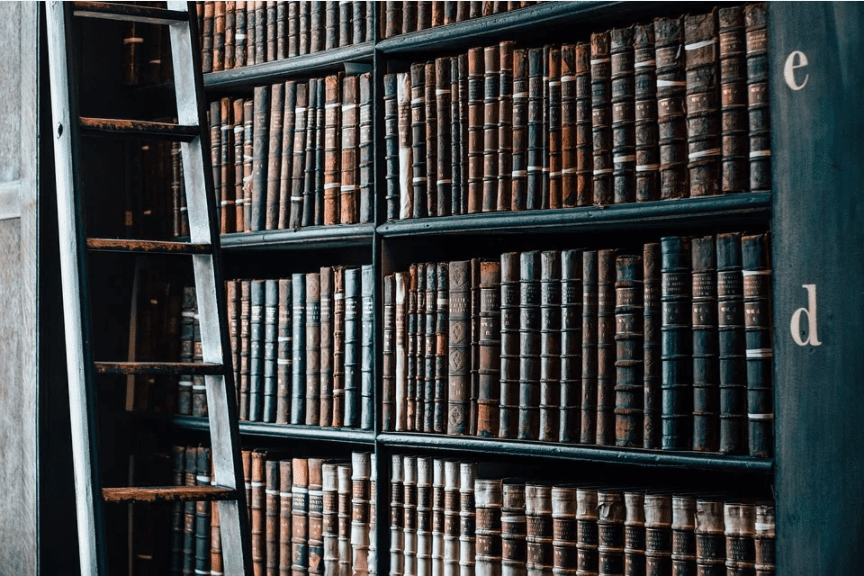Trending Now
If you’re an avid reader, there’s a good chance you have and regularly use your library card. You can check out physical books, ebooks, and audiobooks, if there are wait lists, you’re used to biding your time, and there’s always something new to read.
Fun fact about libraries: they pay royalties to publishers (and therefore authors) for the privilege of including those books in their collection.
Now, libraries are closed and people are rightfully wondering where they might be able to read books for little-to-no cost to them.

Image Credit: Pixabay
It turns out there’s an online library called the Internet Archive that, for almost a decade, has been allowing users to “check out” digital scans of physical books they hold in storage. Readers can view the book in a browser or download it to their e-reader, they can only check out a limited number at a time, and are required to return them by a certain date.
And, until recently, they’ve only allowed people to “check out” as many copies as the library owned. Now, with regular libraries closed and people shut-in for the foreseeable future, that’s changing.
“The Internet Archive will suspend waitlists for the 1.4 million (and growing) books in our lending library by creating a National Emergency Library to serve the nation’s displaced learners.
This suspension will run through June 30, 2020, or the end of the US national emergency, whichever is later.“
Based on the reaction – they had 20,000 new users sign up in the days immediately following, and the Open Library is lending between 15k-20k books a day – people are happy about the decision.
People are reading, kids are able to get their textbooks….everyone should be happy, right?
Well, yes. But there’s a little question about a thing called copyright – and the fact that none of the authors in question are getting paid past the original purchase of the book.
I know a lot of big publishers are not going to take this lying down. But a lot of small publishers, booksellers, and indies are going to get screwed over. I’m an advocate for books being more accessible to everyone but not like this. This is just an overreach.
— Georgina Kiersten 🏳️🌈♿️ (@_imperialpurple) March 28, 2020
Other companies, like Google, have been sued over book-scanning programs in the past, and libraries are only allowed to use digital scans for things like preservation and access for disabled patrons. In short, digital scans are okay (according to the court) as long as they’re used for limited purposes.
Yet no one has said much of anything about the Internet Archive and its practices over the past 10 years.
Back in 2011, Publishers Weekly reported that founder, Brewster Kahle, “told librarians at the recent ALA Midwinter Meeting in San Diego that after some initial hand-wringing, there has been ‘nary a peep’ from publishers about the Internet Archive’s digital book-lending efforts.”
Legal scholars are pretty much shrugging their shoulders, since there’s really no precedent that involves people lending digital scans of books. That said, arguments like fair use, that have been used in similar cases, don’t really seem to apply here, either.
History is full of colossal grifts and impingements upon personal/artistic liberties in the name of “safety” and “emergency need.”
What an absolute con. For shame.
— Lily Burana 🗽 (@lilyburana) March 27, 2020
The FAQ page for the National Emergency Lending program mentions the concept of controlled digital lending and links to this paper, which argues that the courts may look favorably on a nonprofit library invoking a fair use argument.
“We believe that these library uses, of all the varying digital uses, are among the most likely to be justified under a fair use rationale. Several libraries have already engaged in limited CDL for years without issue. It can be inferred that this fact indicates a tacit acknowledgement of the strength of their legal position.”
Legally, that seems like thin ice unless the original copyright is held by someone who is unable to be found, if books are out of print, or materials are old enough that fair use automatically applies.
The books in the Internet Archive include modern, popular tomes that definitely don’t fall under those categories.
And obviously, the law does not make exceptions for pandemics.
That said, no one – not even the Authors Guild or the Association of American Publishers – has put up much of a fight. At least, not recently.
Two years ago the Authors Guild blasted the Internet Archive’s lending program as a “flagrant violation of copyright law,” but other than a brief comment that it was “appalled” by this recent development, no one is running to court.
The Internet Archive doesn’t really want to talk about it, either (understandably so), and has included generic FAQs on their site about borrowing books but doesn’t go into the legality of the program.
Now really isn’t the time for launching protracted legal battles, I suppose, but it will be interesting to see what, if anything, goes down once life has returned to some semblance of normal.
If you want this author’s two cents, I’d say the whole thing is in poor taste. Creatives of all walks deserve to be fairly compensated for their work, and the majority of authors are struggling to make ends meet as it is – very few are the J.K. Rowlings and John Grishams burning up the charts.
Stop paying for content, and there won’t be so much to go around after awhile.
That’s just math, and it never lies.






